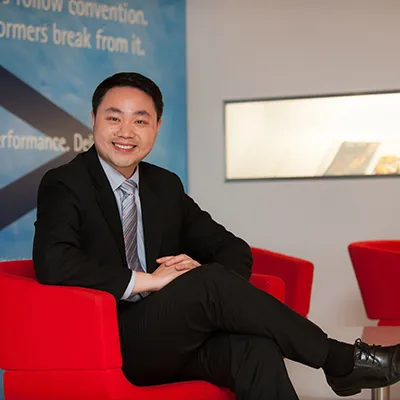Singapore's growing tech ecosystem has thrived thanks in part to strong government support, the ease of doing business, political stability, and proximity to the Asean region. But what does it take to grow, build and maintain a vibrant tech ecosystem?
The Business Times (BT) takes a look at some driving forces behind tech hubs in the city-state and around the globe.
World-class capital
The brightest founders and biggest tech platforms today might not have gotten to where they are now without willing investors to take a bet on them at their infancy. Tech ecosystems such as Singapore, Palo Alto, London, and Tel Aviv have thrived by attracting and retaining investors that have the appetite to embrace startups - across different stages of growth and verticals.
This is "particularly important" for startups in the deep tech space, since more time and funding will be needed to allow these companies to develop their technologies, conduct research and commercialise their products, said Edwin Chow, assistant chief executive of innovation and enterprise at Enterprise Singapore (ESG).
Having more support, access to world-class capital and global networks will help "spark more exit opportunities for startups", said Bernadette Cho, partner at Entrepreneur First.
"If there are fewer seed-stage funders who are willing to take those outsized risks on early-stage companies, startups will lack the leverage that they need to grow into something that's really valuable to drive meaningful exits."
But first, governments had to lay the groundwork. To attract investors, cities such as Singapore dangled tax deductions of up to S$250,000 to encourage angel investors to back early-stage startups.
Singapore's research and development agency, the National Research Foundation (NRF), in 2008 followed in the footsteps of Israel to launch co-investment schemes, reducing the risks for early-stage startup investors in the Republic.
Today, Singapore is home to approximately 220 venture capital (VC) funds, data from ESG showed. Investors call it their base thanks in part to the ease of doing business, as well as its stability and robust frameworks.
Building a talent engine
Dry powder, of course, is only one part of the equation. People are tech startups' biggest resource. Tech hubs come alive when entrepreneurs, engineers, developers and skilled talent flock to them - writing code, leading teams, designing hardware and forming human networks that are the building blocks of the startup industry.
Silicon Valley, for instance, has one of the richest talent pools in the world. Every year, over 3,000 engineering students graduate from Stanford and Berkeley, who refill and expand the ranks of the 150,000 computer scientists and software developers working in California, said Harvard Business Review.
Its dynamism as a tech hub has also attracted skilled tech workers and entrepreneurs from all over the globe.
For startups to scale, they require the resources to strengthen their tech capabilities and capacity, said ESG's Chow. "Demand for talent is high globally. Singapore may not be able to compete in terms of quantity, but we have a pool of diverse and high-quality talent. We must press on with grooming our own pipeline while attracting other top talents."
To address this, ESG offers internships and overseas work opportunities to students and fresh graduates under its Global Ready Talent Programme. The programme has supported over 1,300 internship placements in more than 200 startups to date, said Chow.
In addition, to nurture deep tech talent, ESG has partnered over 20 industry players to help provide on-the-job training for researchers, scientists and engineers through the Innovation Fellowship Programme.
The flywheel effect
In healthy tech hubs, startups spawn other startups. Early employees and founders from the likes of PayPal - including Tesla's Elon Musk, LinkedIn's Reid Hoffman, Palantir's Peter Thiel and YouTube's Chad Hurley - have gone on to become kingpins of next-generation Silicon Valley tech companies.
In Singapore, the virtuous cycle of startup reproduction has accelerated in recent years. Alumni of South-east Asia's first-generation tech companies - such as Lazada, Sea and Grab - have gone on to create and lead over 1,000 startups in the region, found a study by consultancy Bain & Co and Grab's Tech For Good Institute (TFGI).
But it will take time to build more success stories, networks and self-confidence that inspire risk-taking.
Collaborative spaces
Platforms that create opportunities for collaborations and investments have helped serve as catalysts for many tech hubs to flourish, connecting investors to founders and other VC firms in the background.
Year-long conferences such as the Singapore Week of Innovation & Technology (SWITCH) plan to enable businesses, innovators and investors to engage more frequently in a wider range of activities, possibly spurring discussions and opportunities.
"It sometimes takes a village - or multiple villages - to raise a startup and nurture an idea," ESG's Chow told BT. "The support from a whole community of investors, government agencies, corporations and accelerators, among others, enables seeds of innovation to grow. The process brings the community together and enables more ideas to flourish."
Source: The Business Times © SPH Media Limited. Permission required for reproduction.







